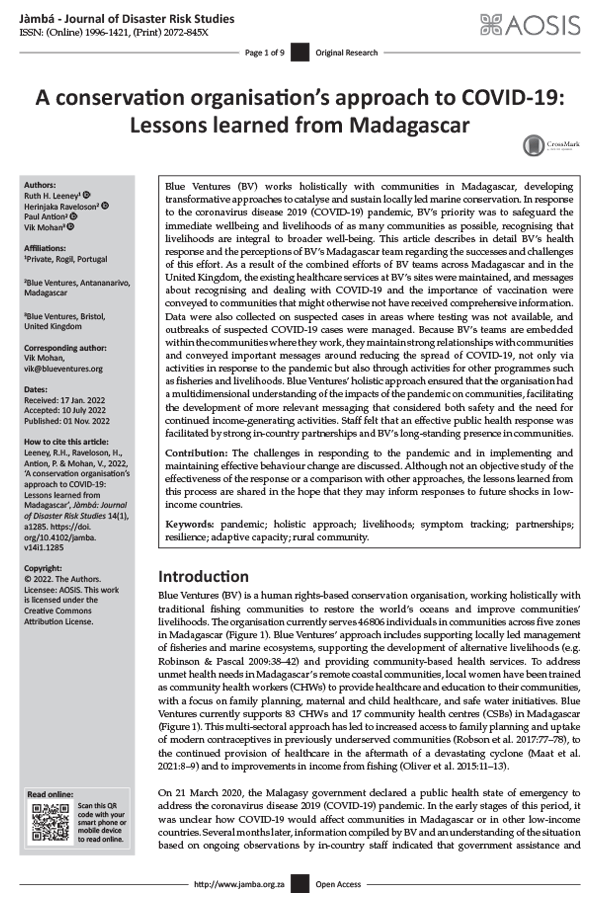Blue Ventures (BV) works holistically with communities in Madagascar, developing transformative approaches to catalyse and sustain locally led marine conservation. In response to the coronavirus disease 2019 (COVID-19) pandemic, BV’s priority was to safeguard the immediate wellbeing and livelihoods of as many communities as possible, recognising that livelihoods are integral to broader well-being. This article describes in detail BV’s health response and the perceptions of BV’s Madagascar team regarding the successes and challenges of this effort. As a result of the combined efforts of BV teams across Madagascar and in the United Kingdom, the existing healthcare services at BV’s sites were maintained, and messages about recognising and dealing with COVID-19 and the importance of vaccination were conveyed to communities that might otherwise not have received comprehensive information. Data were also collected on suspected cases in areas where testing was not available, and outbreaks of suspected COVID-19 cases were managed. Because BV’s teams are embedded within the communities where they work, they maintain strong relationships with communities and conveyed important messages around reducing the spread of COVID-19, not only via activities in response to the pandemic but also through activities for other programmes such as fisheries and livelihoods. Blue Ventures’ holistic approach ensured that the organisation had a multidimensional understanding of the impacts of the pandemic on communities, facilitating the development of more relevant messaging that considered both safety and the need for continued income-generating activities. Staff felt that an effective public health response was facilitated by strong in-country partnerships and BV’s long-standing presence in communities.
Contribution: The challenges in responding to the pandemic and in implementing and maintaining effective behaviour change are discussed. Although not an objective study of the effectiveness of the response or a comparison with other approaches, the lessons learned from this process are shared in the hope that they may inform responses to future shocks in low-income countries.












